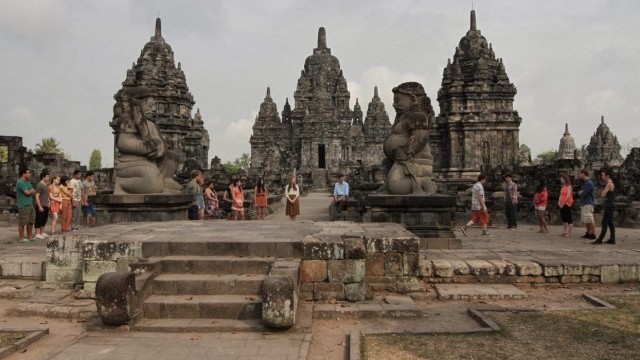
Twenty people stand in front of a bunker as nuclear bombs go off in the distance. The deadly radiation moves their direction and they’re forced to decide who among them deserves refuge and who will have to remain outside and face certain death. Quickly, the group weeds out potential survivors based solely on the careers. Mechanics, carpenters, and scientists are all in, while artists of any kind are out. The lucky ones head inside for a year, waiting until the world outside heals itself, but something is amiss with the group dynamic, tragedy strikes, and mankind is doomed.
Good thing this is nothing more than a thought experiment between students and teacher on the last day of class. Mr. Zimit (James D’Arcy) is challenging the group of graduating seniors before him with a hypothetical situation, and when it fails he has them try again. And again. But what the class can’t know is that there’s something else going on here, and them figuring it out may mean the difference between life and, well, between an A and B grade anyway.
After the Dark is a rare creation in that it’s a thriller (of sorts) designed more to raise questions and provoke thought than it is to provide simple entertainment. It’s an admirable effort, but just because you call yourself a teacher is no guarantee you know how to teach.
The story takes place in a ridiculously unreal classroom at some kind of elite Jakarta-set school, and while the students expected their last day of class to be a breeze Mr. Zimit’s decision to challenge them forces the group into one final experiment. They talk their way through the given scenarios, and as they describe it the action comes to life before our eyes. We see the students hashing things out amid the ruins as violent explosions shake the earth and sky around them. The focus isn’t on the details of the apocalypse though, it’s on their varied thought processes that lead not only to deciding who gets to live but also what comes next. They talk through the year spent underground, they discuss pairing up for procreation purposes, and they debate as to who gets to make the important decisions.
Writer/director John Huddles deserves immediate credit for crafting a film as interested as this one is in dialogue, debate, and ostensibly intelligent discussion, but what might have made for an extremely engaging short film gets lost up its own behind at over 100 minutes.
Scenario rules are laid out, but they continually shift as participants need only vocalize something to make it so, but while that’s fine on the face of it there’s just as much inconsistency there. Someone adds guns and uses them to serious effect, but the others fail to follow suit. People attempting violence in the face of an uncertain future is the only guarantee in such a situation, but here the film’s dedication to its plot means people stop acting believably.
Inevitably the talk and imagined action leads to sex and from there to copulation and the threat of rape, and as with the guns the film’s chosen structure falters. The students and their teacher are sitting in a classroom don’t forget, talking scenarios through, and we’re seeing pairs of students shacking up and stripping down. Violence is introduced, and we see a scenario play out. This would be fine in a traditional narrative, but it’s unclear and illogical that this is being narrated and verbally enacted in the classroom.
D’Arcy isn’t the only recognizable face as he’s joined by Bonnie Wright (Harry Potter), Rhys Wakefield (The Purge), Daryl Sabara (Spy Kids), and others, and just about all of them give finely impassioned performances. The film looks good too, both in its set design and effects work, making it feel at times like an expensive Afterschool Special.
After the Dark argues about and for the use of logic, but it fails too often to apply it in practice. Scenarios are set up to imply that anything could happen but only the intended does, and while still interesting at times, that kind of rigged lesson fails to reach its goal of enlightening or broadening minds. On the other hand, maybe the whole thing is an intentional ploy to ask the one question the film never explicitly states… is humanity even worth saving? By the time class ends the answer should be fairly clear on that one.
The Upside: Thought provoking; prizes discussion over action; shows some personality and wit
The Downside: A bit full of itself; third act falters under its own weight and an unnecessary plot turn; some logical flaws; how long is this class anyway?
On the Side: The film’s original title is The Philosophers. You can see why it had to be changed to something far more generic and potentially edgy.
